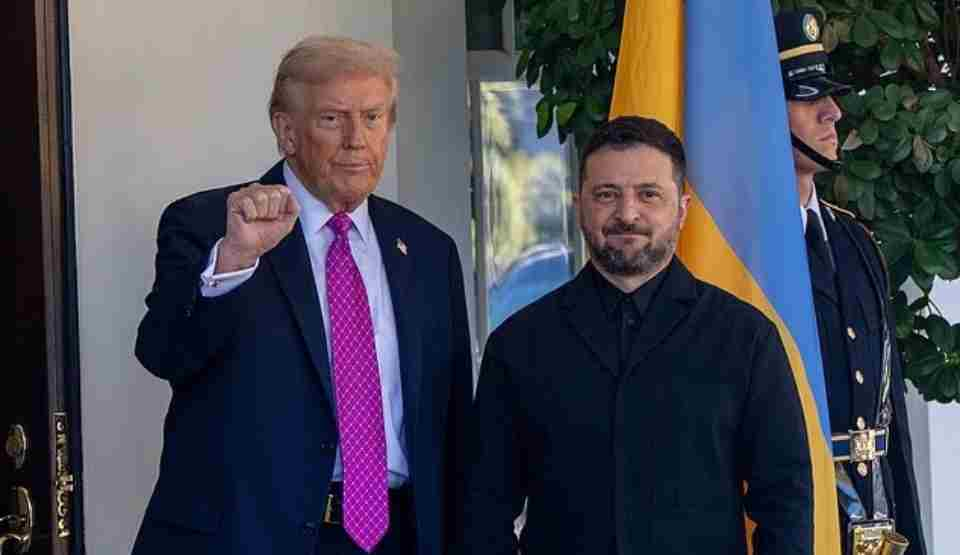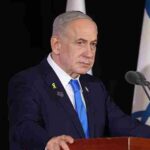A planned meeting between Donald Trump and Vladimir Putin in Hungary has been scrapped after diplomatic talks between American and Russian officials reportedly broke down.
The Budapest summit, which was announced last week without a confirmed date, was abandoned following a phone conversation between US Secretary of State Marco Rubio and Russian Foreign Minister Sergei Lavrov that failed to produce progress.
Sources indicate the discussion grew contentious when Lavrov rejected the prospect of freezing combat operations along Ukraine’s current battle lines.
“An additional in-person meeting between the secretary and foreign minister is not necessary, and there are no plans for President Trump to meet with President Putin in the immediate future,” a Trump administration official stated.
Despite the cancellation, the official—speaking on condition of anonymity—characterized the Rubio-Lavrov call as “productive.”
Moscow echoed the uncertainty on Tuesday, with the Kremlin stating there was no “precise timeframe” for arranging a Trump-Putin summit.
Diplomatic Setbacks Continue
The cancellation marks another setback in Trump’s attempts to broker an end to the conflict, which is approaching its fourth year.
Ukrainian President Volodymyr Zelensky, along with European leaders, has accused Putin of deliberately delaying negotiations to gain tactical advantages on the battlefield.

They have also firmly rejected suggestions that Ukraine should cede Russian-occupied territory as part of any peace agreement—a possibility Trump has occasionally floated.
In a joint declaration, eight European leaders, including British Prime Minister Sir Keir Starmer, and EU officials announced their intention to proceed with plans to redirect billions in frozen Russian assets toward Ukraine’s defense, despite legal and diplomatic concerns about such action.
Zelensky observed that Putin had re-engaged diplomatically and contacted Trump last week when faced with the possibility of US-supplied long-range Tomahawk missiles reaching Ukrainian forces.
“But as soon as the pressure eased a little, the Russians began to try to drop diplomacy, postpone the dialogue,” Zelensky wrote in a Tuesday Telegram message. “We need to end this war, and only pressure will lead to peace.”
Shifting Positions
The European leaders’ statement emphasized their commitment to the principle that “international borders must not be changed by force.”
Trump’s stance on the conflict has fluctuated considerably. Last month, he reversed his longstanding position that Ukraine would need to surrender territory, suggesting instead that Ukraine could reclaim all lost ground.
However, following last week’s phone call with Putin and a subsequent Friday meeting with Zelensky, Trump again shifted course, urging both sides to “stop where they are.”
On Sunday, Trump suggested the Donbas region in eastern Ukraine should be “cut up,” with the majority remaining under Russian control.
By Monday, Trump expressed skepticism about Ukraine’s ability to achieve outright military victory, despite acknowledging it as a theoretical possibility.
Allied Concerns
Ukrainian and European officials are working to maintain Trump’s support for their position.
“We strongly support President Trump’s position that the fighting should stop immediately, and that the current line of contact should be the starting point of negotiations,” the joint statement read. “We can all see that Putin continues to choose violence and destruction.”
Trump’s approach to Europe’s largest military conflict since World War II has been unpredictable as he pursues a peace settlement.
Russia currently controls approximately one-fifth of Ukrainian territory. Kyiv officials consider any territorial concessions in exchange for peace unacceptable.
Ukrainian and European officials also warn that freezing the conflict along present lines could prove dangerous, potentially providing Russia with a platform for future military operations.
Week of Intensive Diplomacy
The statement from leaders of Ukraine, the United Kingdom, Finland, France, Germany, Italy, Norway, Poland, Denmark, and EU representatives came at the start of what Zelensky described as “a week that is very active in diplomacy.”
Additional economic sanctions against Russia are expected to be on the agenda at an EU summit in Brussels on Thursday.
“We must ramp up the pressure on Russia’s economy and its defence industry, until Putin is ready to make peace,” Tuesday’s statement declared.
On Friday, the Coalition of the Willing—a group of 35 nations supporting Ukraine—is scheduled to convene in London.






